Fanti the Eccentric Storyteller
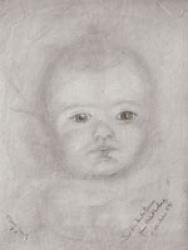 Edgar Ende, Portrait of Michael Ende, 11.05.1930
Edgar Ende, Portrait of Michael Ende, 11.05.1930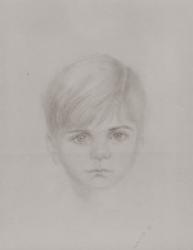 Edgar Ende, Portrait of Michael Ende, 1932. Pencil
Edgar Ende, Portrait of Michael Ende, 1932. Pencil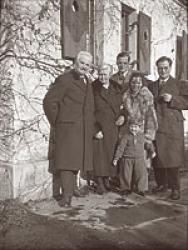 The Ende Family in Munich Pasing, 1931
The Ende Family in Munich Pasing, 1931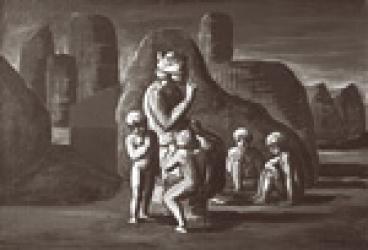 Edgar Ende, Die blinde Märchenerzählerin (‘The Blind Storyteller’)
Edgar Ende, Die blinde Märchenerzählerin (‘The Blind Storyteller’)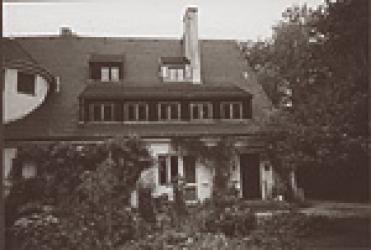 Floßmann’s villa in Munich
Floßmann’s villa in MunichMichael Ende first succumbed to the magic of storytelling while listening to Fanti, ‘an alcoholic painter and a most eccentric and gifted man’, whose incredible stories won the affection and admiration of all the children in the neighbourhood. Fanti invented his stories as he went along, telling wildly imaginative tales. He also used scraps of paper to draw fabulous illustrations. ‘Perhaps I was thinking of him,’ wrote Ende, ‘when I created Luke the Engine Driver.’ For the young Ende, the hours spent listening to Fanti were filled with enchantment and excitement, and they remained vivid in his mind. He kept some of Fanti’s drawings until his death.
When questioned about his work, Michael Ende often mentioned the influence of Fanti’s storytelling on his fiction: ‘My real education was imparted by one of our neighbours - a totally eccentric old chap. He was a painter like my father. His whole house was painted from top to bottom with the wackiest fairytale scenes. He was a communist and had a terrible squint - he shot himself in the temples as a lovelorn young man - and always wore a cap. The kids in the neighbourhood clung to him like limpets, but he would have been anathema to today’s permissive parenting. Whenever we got up to mischief – on one occasion we even derailed a tram - he assessed the extent of the crime, calculated the size of the punishment, fetched his ladle and dished out the exact number of blows, making sure that each hit home. We used to howl with pain, but if he hadn’t beaten us, we would have been mortally offended. We genuinely loved him. Looking back, those were the happiest years of my childhood.’
Edgar Ende experienced the highpoint of his artistic career in Munich Pasing. The State of Bavaria purchased a number of his works, and his name became known throughout Germany and abroad. Contact was made with French galleries and American cultural institutes. No one knows the exact dates of the family’s sojourn in Joseph Floßmann’s old villa, but it was a period that had a formative influence on Michael Ende’s career. In addition to Fanti, Ende came into contact with a circus family that had been given refuge in the house next door. Too poor to buy their own tent, the family were taken in by Hildegard Buchner, whose four children delighted in learning magic tricks and acrobatics. The clowns also let them experiment with costumes and face paint and taught them how to stage their own simple acts, which the children did with enthusiasm. For Michael Ende, the performer came to epitomize the artist - a character who, like the tightrope walker or the clown, is responsible for the creation of something that has no ‘purpose’.